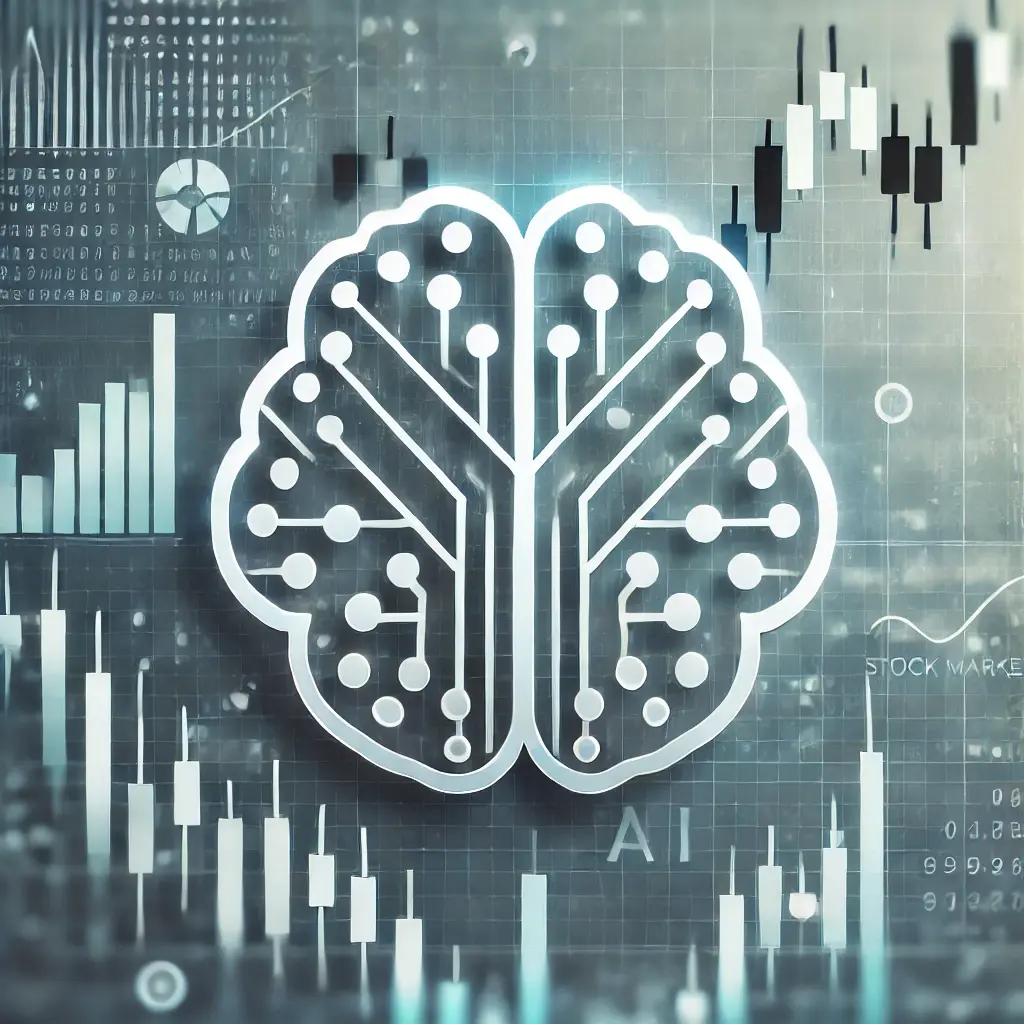
*The image is AI genrated
Artificial Intelligence (AI) has significantly changed stock market trading, providing not only innovative tools but also an enhanced decision-making process. Once the stuff of science fiction, is now making million-dollar investing decisions in milliseconds. You may be wondering: Is AI the key to unlocking unprecedented returns, or is it a double-edged sword that could reshape the financial landscape in unpredictable ways?
The use of machine learning algorithms, data analysis, and predictive modeling approaches to make trading decisions in financial markets is known as AI trading, or algorithmic trading powered by artificial intelligence. AI trading systems can use real-time data analysis or pre-programmed methods to automatically execute buy or sell orders.
How does AI trading work?
AI stock trading uses machine learning, sentiment analysis, and complex algorithmic predictions to analyze millions of data points and execute trades at the optimal price. AI traders also analyze forecast markets accurately and efficiently to mitigate risks and provide higher returns.
The Key Roles of AI in stock trading :
- Data Gathering: Collecting significant financial and sentimental data about the stock from various sources, social media, news stories, corporate financials, and historical pricing data.
- Data Preprocessing: Cleaning and checking the obtained data to ensure accuracy for training the AI models.
- Feature Engineering: Navigating through the data to find relevant information and predictive value.
- Algorithm Selection: Choosing suitable algorithms for accurate trading, such as machine learning models and natural language processing(NLP) techniques.
- Training the Model: Making use of past data to assist the AI in identifying trends and linkages in the marketplace.
- Backtesting: The process of testing AI models’ performance on historical data to provide a sense of how well they might perform in the future.
- Live Trading: Putting AI models into practice for trading in real-time while making sure risk control measures are in place to protect against unforeseen market swings.
Categorization in AI Trading
Quantitative Trading: This method examines price and volume data to determine the most profitable investment opportunities.
Algorithmic Trading: Traders use predetermined rules based on historical data to make trading decisions.
High-frequency Trading: A subset of algorithmic trading that involves rapidly buying and selling large volumes of stocks.
Automated Trading: This system uses technical analysis from quantitative trading and computer algorithms.
Is using AI for trading legal?
Yes, using AI for trading is legal as long as it complies with financial market regulations in the relevant jurisdiction. AI trading systems need to follow licensing and registration regulations, stay away from illegal behaviors like insider trading and market manipulation, and make sure that their operations are transparent and equitable. Further disclosures and compliance steps can be required if it is made available to third parties, including through robo-advisors. Legal and moral AI trading also requires appropriate risk management and data privacy procedures.
Is trading with AI safe?
AI investing is frequently risky, but it’s not always so. Better diversification, less emotional bias in decision-making, and more advanced risk management are all possible with AI-powered solutions. Large volumes of data can be processed rapidly by them, which may help them spot opportunities and hazards that human analysts might overlook. However, AI systems frequently have a lot of flaws. If their algorithms are incorrect or they are provided erroneous data, they may make mistakes. Another concern is an over-reliance on AI, which could result in a herd mentality if a lot of investors employ the same AI models. Furthermore, AI systems might not be able to adequately account for unusual occurrences or market circumstances.
Can AI predict the stock market?
It is unclear if AI can accurately predict the stock market, but many people are investing a lot of money to find out. According to a 2023 study, a machine-learning model beat conventional techniques for market movement prediction, generating an average monthly return of 2.71% as opposed to 1% with traditional techniques. This suggests that the use of AI in stock prediction has a bright future. However, other efforts have failed to outperform benchmarks.
Is AI Trading suitable for beginners?
Definitely, first-time investors often start with robo-advisors. Many forms of AI are far simpler to use, yet some of them have the latest technological advancements and the capacity to comprehend and interpret language. With stock screeners, AI makes it much easier for investors to find stocks that fit their requirements.
Conclusion
AI will undoubtedly continue to play a significant role in investing, changing the way that transactions are made and portfolios are maintained. It’s likely that your fund managers or portfolio managers are utilizing AI-powered tools to improve decision-making and maximize profits, even if you’re not using them directly for trading. AI is becoming a vital component of contemporary investment, from evaluating enormous information to forecasting market movements and reducing risks. Understanding and utilizing AI tools can provide traders of all experience levels a competitive advantage. Effectively navigating the intricacies of financial markets, however, still requires striking a balance between AI’s potential and human judgment.
To learn more:
Stock Market Anomalies and Machine Learning Across the Globe.” Journal of Asset Management, vol. 21 (2023), pp. 419–441. Azevedo, V., Kaiser, G.S., and Mueller, S.